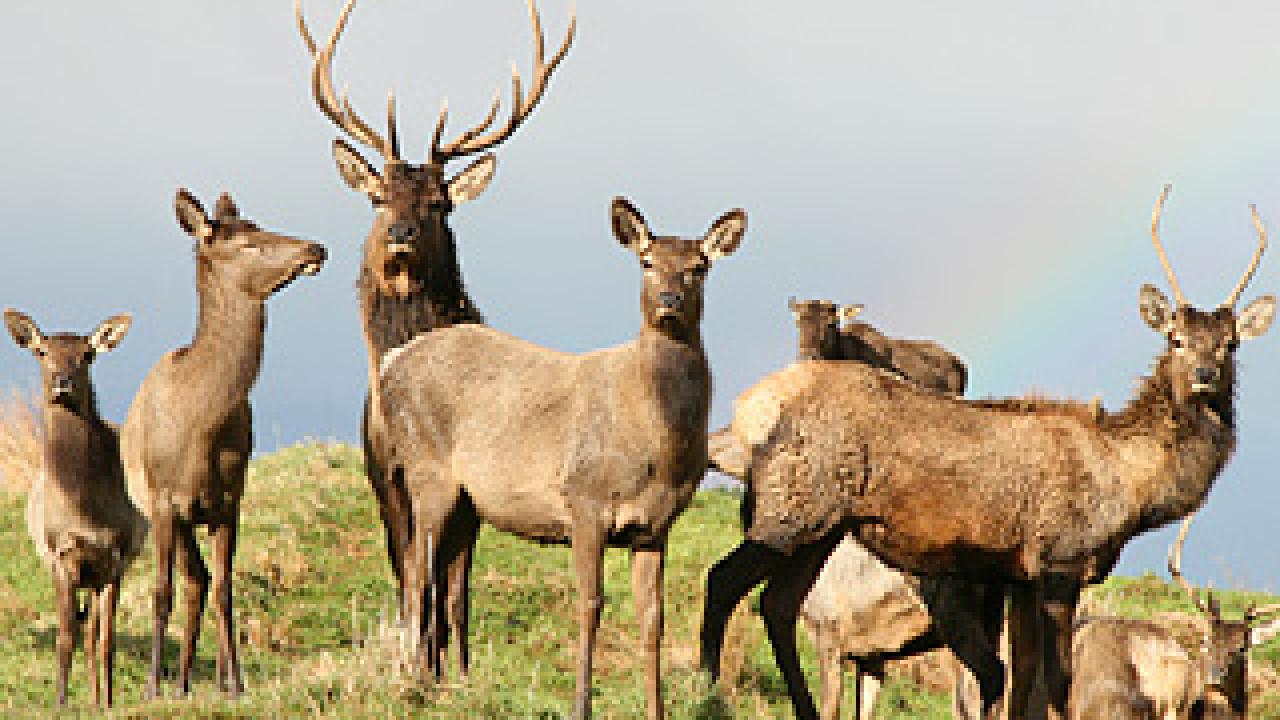
Don't lose the organism over its genes
Physiology and behavior variations in complex organisms are due to more than genetic variations.
It’s been said metaphorically that too much focus on the trees can cause one to lose sight of the forest. In a similar check of perspective, a group of biologists, led by a University of California, Davis, scientist, suggests that decades of focus on genes has led the scientific community away from a balanced exploration of the organisms that those genes define — whether they be plants, animals or microorganisms.
Biologists suggest a shift to a new emphasis on individual organisms -- whether animal, plant or microbe -- and their environments and life histories.
In an article appearing this week in the June issue of the journal BioScience, the researchers assert that genetic variation alone does not adequately explain the intricate variations in the physiology and behavior of complex organisms. They propose a renewed emphasis on studying individual organisms in the context of specific environments, considering in greater depth the unique environmental exposures and experiences over the course of these organisms’ lives.
“Biology’s strong focus on genes during the past 50 years has generated a solid foundation for studying the mechanisms that determine the phenotype — the structure and function — of living organisms,” said Dietmar Kueltz, a professor of physiological genomics in the UC Davis Department of Animal Science.
He noted that despite the wide-ranging practical implications, little is known about how such mechanisms are influenced by the unique lifelong sequence of environmental exposures experienced by individuals. For instance, individuals’ disease susceptibility, stress resilience, coping ability and other important performance traits, as well as complex behavioral patterns, decision making and human psychology are not only determined by genes but also greatly influenced by prior exposures, learning and life-history experiences.
“It is critical that we now emphasize more strongly the complementation of gene-oriented approaches with a renewed focus on the organismal phenotypes in the context of specific environments and life histories, in order to better understand and explain the physiology and behavior of such complex organisms,” Kueltz said.
Kueltz and his colleagues maintain that during the past several decades, biological research has moved away from the organism in two gene-focused directions: inward, toward the world of cellular and molecular biology, and outward, toward the broad-scale evolutionary issues of population and quantitative genetics.
“These two movements resulted in many monumental discoveries and advances that now define modern biology,” Kueltz said. “The challenge now is to make the most of the vast insights from those movements and develop a deeper understanding of how, for example, variations in individual physiological and behavioral traits influence ecological and evolutionary processes.”
He and his colleagues advise that a modern research emphasis on organismal phenotypes will require cross-fertilization and integration of traditionally disparate fields of biology, including developmental biology, physiology, morphology, behavioral biology, neuroscience, ecology and evolutionary biology.
They propose that improved tracking technologies are needed to record life-history exposures and experiences of complex organisms, as well as the environmental variables in their natural habitats at proper resolution. Furthermore, they call for accelerated development of more powerful and widely accessible high-throughput tools for elucidating the structure and function of organisms, just as high-throughput technology was created for comprehensive studies of genetic blueprints.
“There are promising developments under way in all of these areas,” Kueltz said. “We look forward to the advances in the biology of complex organisms that will be achieved when efforts in these technological and organizational areas are intensified.”
The BioScience article represents the analyses and discussions from a 2011 workshop in Arlington, Va., on the future of organismal biology, supported by the National Science Foundation.
Co-authors are: David F. Clayton and Gene E. Robinson, University of Illinois at Urbana-Champaign; Craig Albertson, University of Massachusetts, Amherst; Hannah V. Carey, University of Wisconsin, Madison; Molly E. Cummings, Hans A. Hofmann, and Daniel C. Stanzione, University of Texas, Austin; Ken Dewar and Michael J. Meaney, McGill University; Scott V. Edwards, Harvard University; Louis J. Gross, University of Tennessee, Knoxville; Joel G. Kingsolver, University of North Carolina at Chapel Hill; Barney A. Schlinger, University of California, Los Angeles; Alexander W. Shingleton, Michigan State University; Marla B. Sokolowski, University of Toronto; George N. Somero, Stanford University; and Anne E. Todgham, San Francisco State University.
About the College of Agricultural and Environmental Sciences
The College of Agricultural and Environmental Sciences at the University of California, Davis, is the leading college of its kind in the world. Its researchers address critical issues related to agriculture, food, the environment, communities, and human and social sciences through cutting-edge research, top-ranked undergraduate and graduate education, and internationally recognized outreach programs.
An overarching goal is to develop solutions for a better world, healthier lives, and an improved standard of living for everyone. www.caes.ucdavis.edu
Media contacts:
- Dietmar Kueltz, Animal Science, (530) 752-2991, dkueltz@ucdavis.edu
- Pat Bailey, UC Davis News Service, (530) 752-9843, pjbailey@ucdavis.edu
College of Agricultural and Environmental Sciences contact:
- Ann Filmer, Senior Director of Communications, (530) 754-6788, afilmer@ucdavis.edu